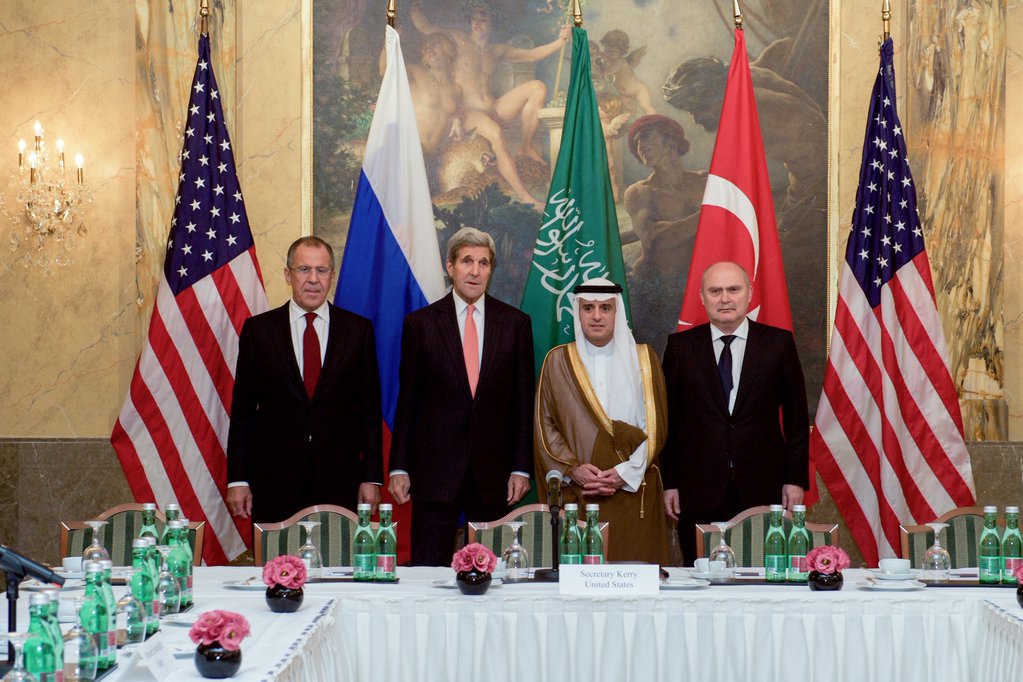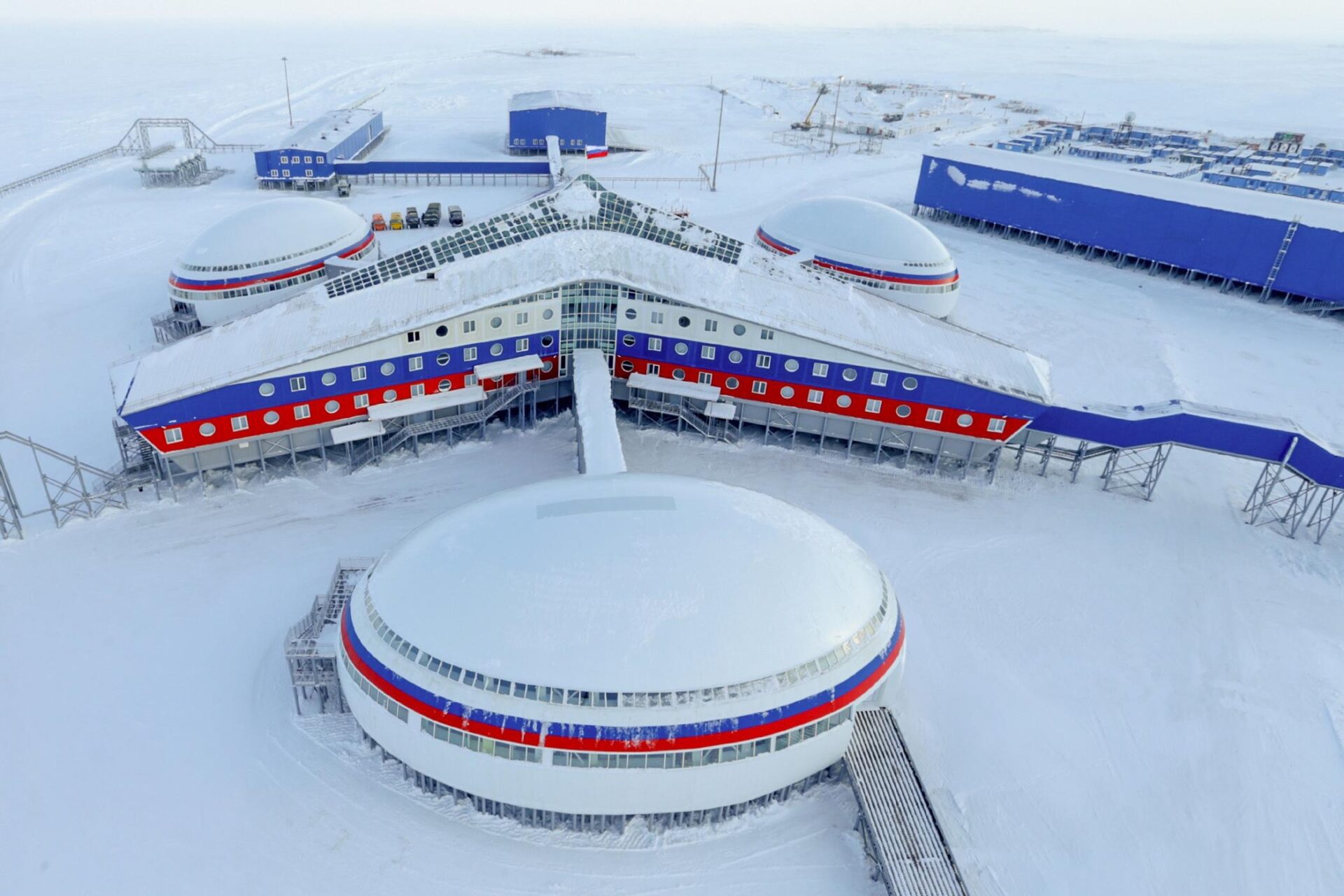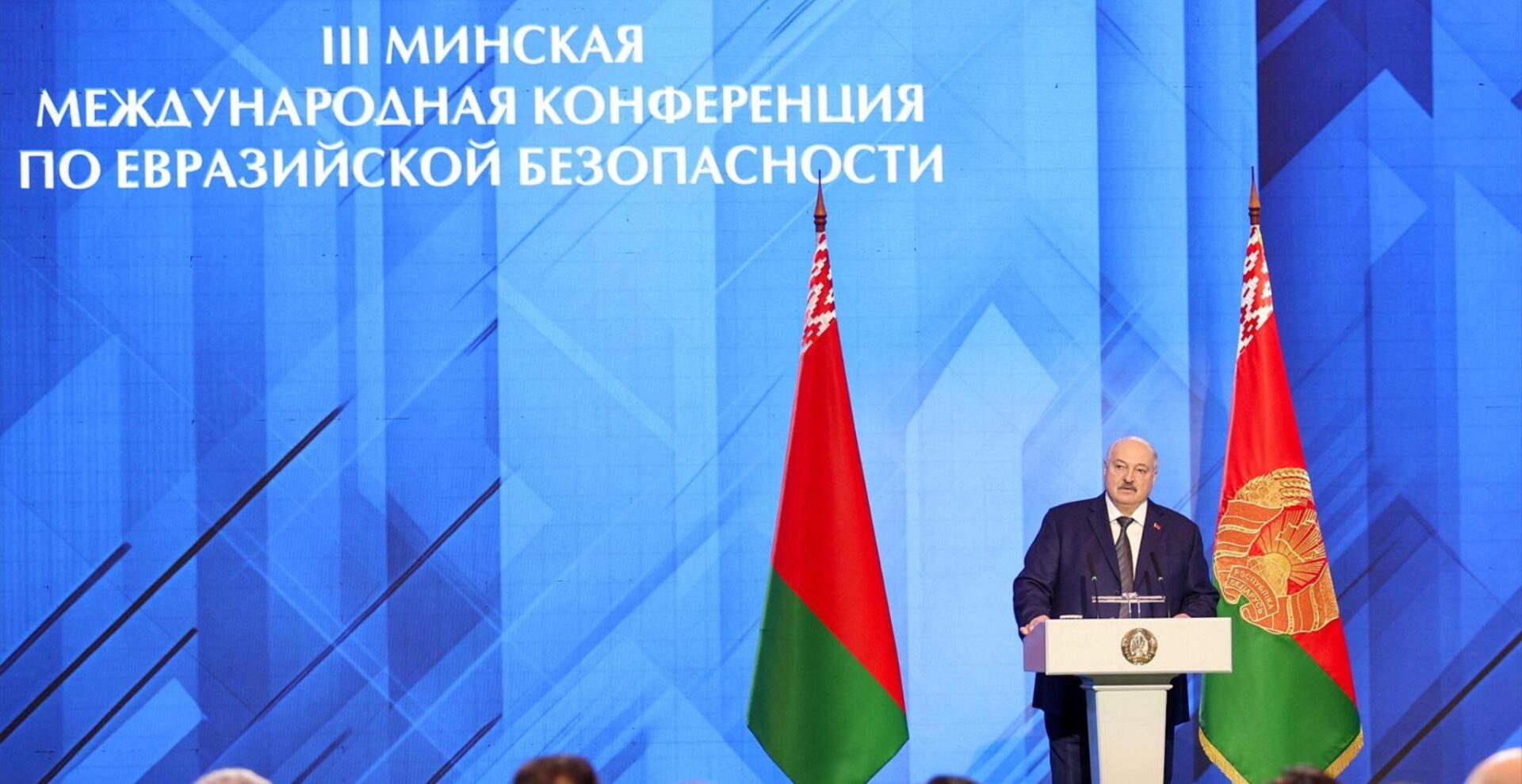
Vienna Talks Chart a Way to Russian Departure From Syria
Vienna Talks Chart a Way to Russian Departure From Syria
The long-stagnant process of trying to conclude Syria’s devastating civil war was reinvigorated last week (October 30), when as many as 19 delegations gathered in Vienna for an eight-hour-long round of talks. Expectations were low, but the participating diplomats managed to play down their deep disagreements and sign a document that summed up a remarkably long list of common positions, including the goals of preserving the Syrian state as well as defeating the Islamic State and other terrorist organizations (the full list is yet to be compiled). US Secretary of State John Kerry expressed gratitude to Russian Foreign Minister Sergei Lavrov for his government’s commitment to the resolution of the crisis, and Lavrov, in turn, praised Kerry’s “decisive contribution” to the significant success of the talks (Kommersant, October 30). Russian media was eager to present the establishment of the expanded format of the negotiations, and in particular the inclusion of Iran, as a victory for Moscow (Nezavisimaya Gazeta, October 30). Yet, this gathering of stake-holders was significantly different from the broad anti-terrorist coalition that President Vladimir Putin advocated in his speech at the United Nations General Assembly a month ago.
Putin’s key proposition at the UN was to include the “legitimate” Syrian regime of Bashar al-Assad in the coalition. And while the diplomats in Vienna agreed to bracket out their countries’ discord about the fate of this dictatorship, the possibility that the al-Assad regime will be part of some future solution is rather uncertain. Indeed, the agreed document calls for UN-supervised elections in Syria in some indefinite future, something that would, in fact, signify a dismantlement of al-Assad’s regime, which—aside from the Alawite minority—has alienated a vast majority of Syrians (Moscow Echo, October 23). Iran has indicated a readiness to accept al-Assad’s replacement after a six-month “transitional period,” and is apparently far more interested in being internationally accepted as a major party to the negotiations than in keeping the war going (Vedomosti, October 30). Russia’s military intervention, meanwhile, was aimed at exploiting the confusion in Western policies and has forced the United States and the European Union to renew their efforts at seeking a solution for the Syrian disaster. But as these Western policies gain momentum, Russia’s lack of strategic purpose in its power projection is becoming plainly clear (Forbes.ru, October 26).
After a month of bombing at a rate of 30–50 sorties a day, Russians’ initial excitement about the new air war has evaporated, while the government in Moscow is finding it ever more difficult to produce further proof of the campaign’s success (Kommersant, October 26). The main difference between Russian and US air strikes in Syria is that the former has deployed mainly aircraft (Su-25SM) and helicopters (Mi-24) capable of providing close air support. But this difficult mission only makes sense if Syrian government troops are able to conduct offensive operations, and several feeble attempts of this sort have produced scant gains (Novaya Gazeta, October 30; see EDM, October 29). The air regiment at the Hymeymim airbase has been fortunate to not experience serious maintenance problems, which are bedevilling the Russian Air Force (a MiG-31 fighter was lost last Friday in the Far East, adding to the long list of crashes in 2015), but this run of good luck could end soon (RIA Novosti, October 30). As of late October, extra-high-volume propaganda raised Russian public approval for the air intervention to just above 50 percent, but 66 percent of respondents remain opposed to the deployment of ground troops (Levada.ru, October 29).
The fate of the politically overblown intervention in Syria hangs in a precarious balance, and the talks in Vienna could give Moscow an opportunity to declare victory and wrap up the combat operation before it encounters serious trouble (Moscow Echo, November 1). The biggest problem with such an escape strategy, however, is that instead of demonstrating Russia’s military might, the poorly planned deployment and indiscriminate bombing would illustrate a cavalier attitude to the use of limited and ineffectual military instruments of a self-aggrandizing policy. Putin cannot afford the spread of such impressions, so he puts in play the heaviest means at his disposal—Russia’s nuclear arsenal. On October 30, Russian strategic forces conducted a large-scale exercise with missile launches from two submarines, cruise missile strikes from Tu-160 strategic bombers, and other tests demonstrated in video clips posted to the defense ministry’s website (Mil.ru, October 30). The only part missing in this show was the launch of a Bulava missile from one of the three new Borey-class submarines; something had obviously gone astray with the plan for testing this troubled missile this autumn (Interfax, July 1). On the same day, Putin convened a meeting of his Security Council to deliberate measures regarding nuclear security and weapons of mass destruction (Kremlin.ru, October 30). According to Deputy Prime Minister Dmitry Rogozin, the real agenda was focused on countermeasures to US high-precision strikes on Russia’s most vulnerable infrastructure assets (Kommersant, October 30).
This agenda requires new investments to modernize Russia’s strategic capabilities, but the deepening economic crisis undercuts the implementation of its rearmament program (Polit.ru, October 28). While the official discourse promises a rebound from the “bottom” of the recession, the government quietly admits the possibility that the national currency may drop in value again (Moscow Echo, October 27;Nezavisimaya Gazeta, October 29). In fact, against previous guidelines, the draft state budget for 2016 envisages a real cut in the expenditures on the Armed Forces (TASS, October 30). Direct costs of the intervention in Syria may be not that high ($2.5 million a day, according to the most conservative Russian estimate), but they are adding up and may yet spike sharply if Russia is forced to respond to a military setback with an expanded deployment (Rbc.ru, October 28).
Putin shows little interest in increasingly unpleasant economic matters, but he likely cannot fail to see that his Syrian master-stroke has boxed Russia in: sustaining the operations on the same level means waiting for a disaster to strike sooner rather than later, while expanding the intervention is unaffordable and unpopular at home, and a withdrawal would involve a humiliating loss of face. The Vienna talks might succeed in making the third option less unacceptable, but any possible deal would signify Russian consent to a loss of its only strategic “asset” in the Middle East. Syria is not that valuable to Moscow in and of itself, but Putin is desperate to disprove the logic that Russia’s decline on his watch inevitably means retreat.


